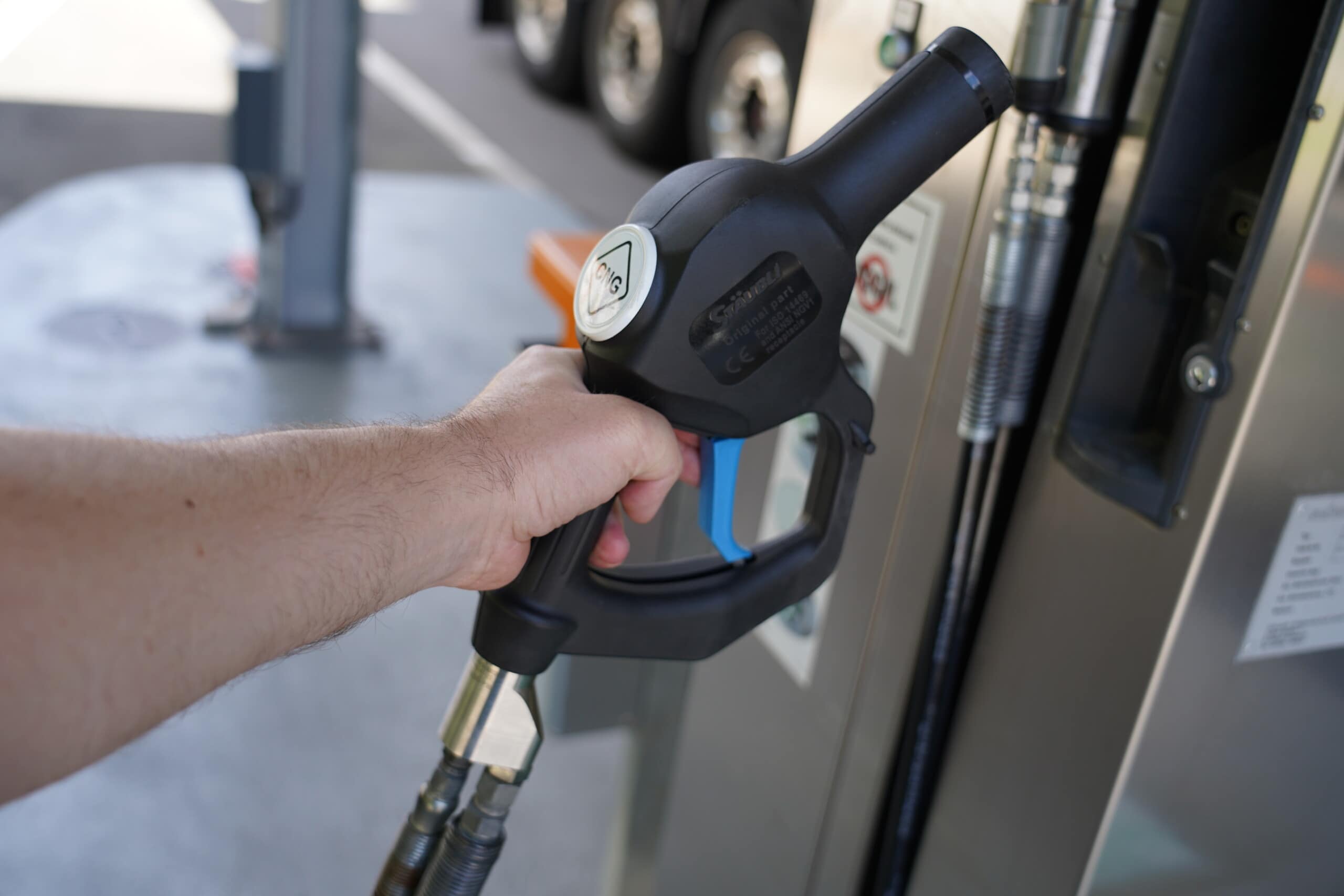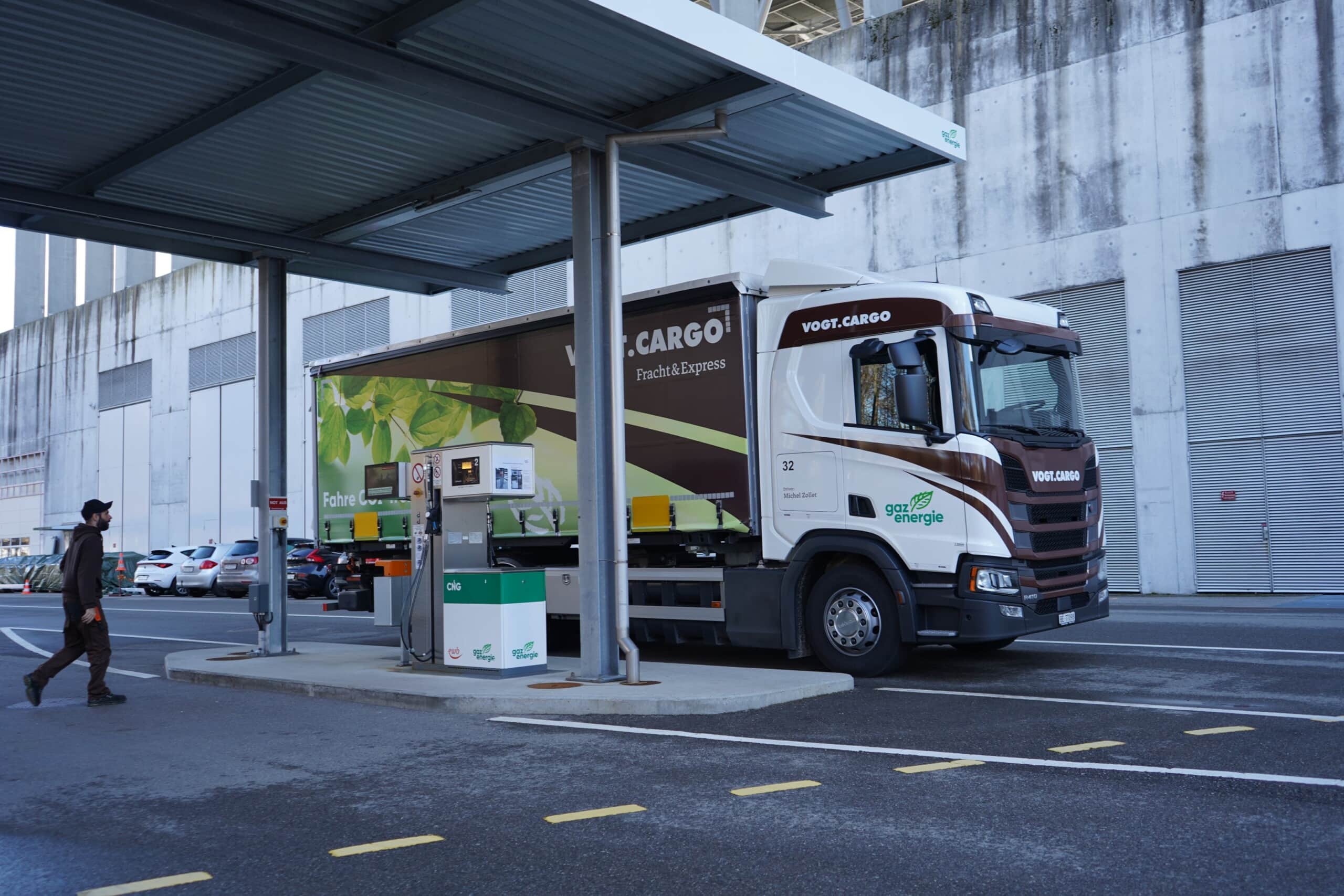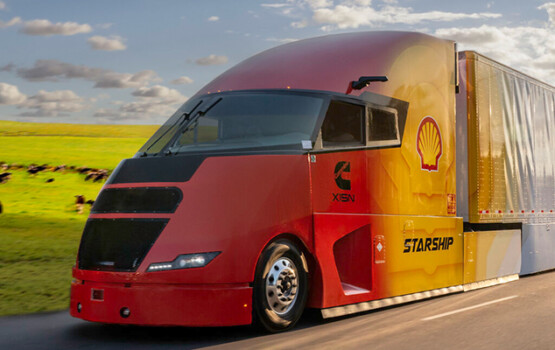Portal for more climate-friendly mobility

Factors that go into the price of gas
There are sometimes significant price differences between CNG and biogas at petrol pumps across Switzerland and Europe. The underlying reasons for this indicate that the gas industry is trying to curb the price surge for consumers rather than generate massive profits.
 Why do gas prices vary so much across Switzerland and are they even too high? Background information provides transparency and clarity. Source: CNG-Mobility.ch
Why do gas prices vary so much across Switzerland and are they even too high? Background information provides transparency and clarity. Source: CNG-Mobility.ch
Whether CNG, biogas or LNG, gas prices have not only been an issue since the massive price increases caused by the market distortions resulting from the Ukrainian war or delivery bottlenecks and concerns about security of supply. Gas prices in Switzerland have been the subject of regular price monitoring for years. In order to create transparency and increase the comparability of rates, they were systematically surveyed for the first time in 2011. The gas prices of around 100 gas supply companies covered by the price monitoring system are even available on a dedicated website.
In Geneva and Bern, for example, the price of gas has increased by more than 30% within a year, while in other regions the price increase is still imminent – despite the easing of tension on the gas markets themselves. Greed for profit on the part of the gas suppliers? Not at all! Even price monitoring expert Stefan Meierhans told SRF a month ago that he had reviewed various increases in recent months and had concluded that the gas prices were okay: “Almost the opposite has been the case to date,” explained Meierhans: “Often reserves have actually been used to cushion the rise in gas prices. No excessive profits were realised – in fact companies were content to do without them.”

This is a good reflection on Swiss gas suppliers of course, but it still fails to account for the massively higher prices for CNG, LNG and biogas at petrol pumps that private individuals and companies are currently having to face with when refuelling their CNG and LNG vehicles. Incidentally, as a multilingual knowledge portal, CNG-Mobility.ch has no influence on pricing: it simply offers the option of finding a CNG filling station throughout Europe via the so-called petrol station finder – and provides details of prices as reported. However, the latter are determined by the respective gas suppliers and operators of the individual filling stations.
The prices on site at the pumps are subject to a wide variety of factors: they depend on maintenance costs, service intervals, etc., but most importantly on the purchasing strategy chosen by the operator. These strategies differ considerably. CNG, LNG and biogas can be procured in the short or longer term at European gas trading venues, and this has an impact on price – as does the amount you buy as an operator.
 Even biogas is subject to these price fluctuations. Incidentally, there is a filling station in Thayngen SH in Switzerland where you can even fill up with biogas directly from the farm. Source: CNG-Mobility.ch
Even biogas is subject to these price fluctuations. Incidentally, there is a filling station in Thayngen SH in Switzerland where you can even fill up with biogas directly from the farm. Source: CNG-Mobility.ch
It is true that providers can buy some of the gas well in advance, which makes them somewhat independent of volatile spot markets where gas is sourced in the short term. But if the purchase price of the gas does increase in the short term, this may also have an impact on the retail price, depending on the purchasing strategy. For example, one supplier has been purchasing gas in stages around two and a half years in advance. This has helped cushion price increases for customers in the last invoicing period. These differing purchasing strategies are also reflected in the fact that individual gas suppliers have been lowering their gas prices while others have had to raise them.
 As of the beginning of 2023, there are more than 14,000 climate-friendly CNG vehicles on the road in Switzerland, and around 18 million worldwide. Source: CNG-Mobility.ch
As of the beginning of 2023, there are more than 14,000 climate-friendly CNG vehicles on the road in Switzerland, and around 18 million worldwide. Source: CNG-Mobility.ch
The price of CNG and biogas is currently extremely volatile. This is to be seen not only in the mobility sector but also in the heating market: here, incidental rental costs have risen massively for many tenants because global political uncertainty has had a noticeable impact on energy prices in general. On the futures markets, gas prices for 2023 are also significantly higher than they were before. In addition to purchasing strategy, quantity, timing and the individual cost structure of the operators and gas suppliers, the share of biogas has an impact on the price that customers have to pay at the pump too, of course. Even where biogas is produced regionally, the certificates are likewise traded nationally or internationally. As the demand for sustainable energy sources increases worldwide, biogas is becoming increasingly popular. So the principle of supply and demand results in a price increase, which unfortunately is also felt by particularly environmentally conscious CNG drivers using 100% biogas.
This is why it is so vital to do more to exploit local biogas potential and build additional biogas plants so as to be able to supply more of the biogas in demand in the future: this ought to bring about a reduction in the price range. As Thomas Hegglin of the VSG recently stated unambiguously: “Gas prices will certainly not return to the level they were two years ago in the foreseeable future. Essentially, we really do have to be prepared for higher gas prices.” (pd/jas, 12 January 2023)
 Source: CNG-Mobility.ch
Source: CNG-Mobility.ch
You might also be interested in

Shell Starship on record hunt
